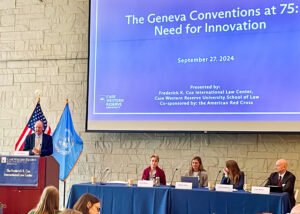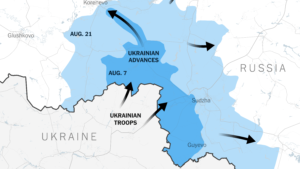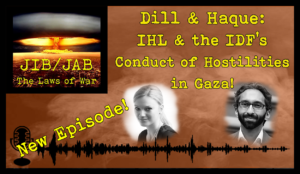 Published my latest article, written with Scott Moore of UPenn, “Geoengineering Wars and Atmospheric Governance,” in the The Harvard International Law Journal. A copy can be downloaded from SSRN here. Here is the abstract:
Published my latest article, written with Scott Moore of UPenn, “Geoengineering Wars and Atmospheric Governance,” in the The Harvard International Law Journal. A copy can be downloaded from SSRN here. Here is the abstract:
The increasingly harsh and unevenly distributed heat-related harms caused by climate change, together with frustration over the collective inability to respond to the crisis, are likely to make unilateral geoengineering efforts increasingly attractive. Stratospheric aerosol injection (“SAI”) is a form of solar radiation modification that is effective, technically feasible, and within the financial means of many states and even non-state actors. Yet, there are virtually no global governance structures in place to specifically regulate such activity, and existing international law would provide only weak constraints on unilateral SAI efforts. These features create incentives for unilateral action in what is known as a “free driver” problem: few constraints on a unilateral action that has low direct cost combined with immediate direct individual benefit despite widely distributed risks and indirect costs.
There would be significant collateral environmental and climatic harms associated with SAI. That, coupled with the high risk of unilateral action, is reason enough for both caution and stronger governance. But another risk posed by any unilateral SAI effort—one that is underappreciated and under-theorized—is that of armed conflict. We explore how and why states would likely perceive the potential risks associated with unilateral SAI effort as constituting a threat to national security, and in the absence of adequate legal and institutional mechanisms to constrain such unilateral action, might well contemplate the use of force to defend against the perceived threat. The Article explores and explains how and why the jus ad bellum regime is unlikely to prevent states from engaging in unauthorized use of force against unilateral SAI actors. (click “read more” below for full abstract).



